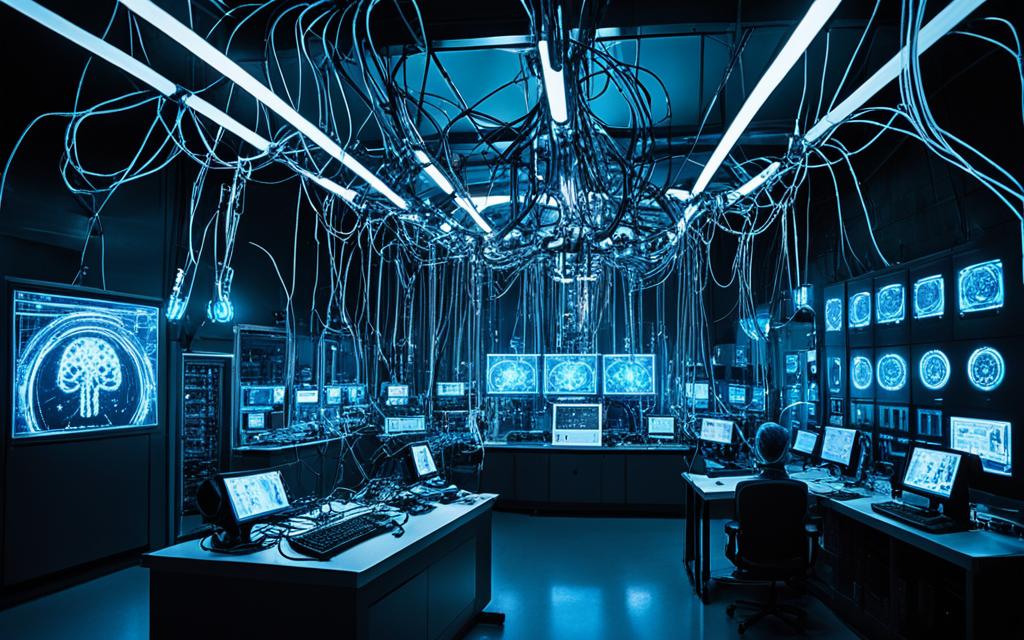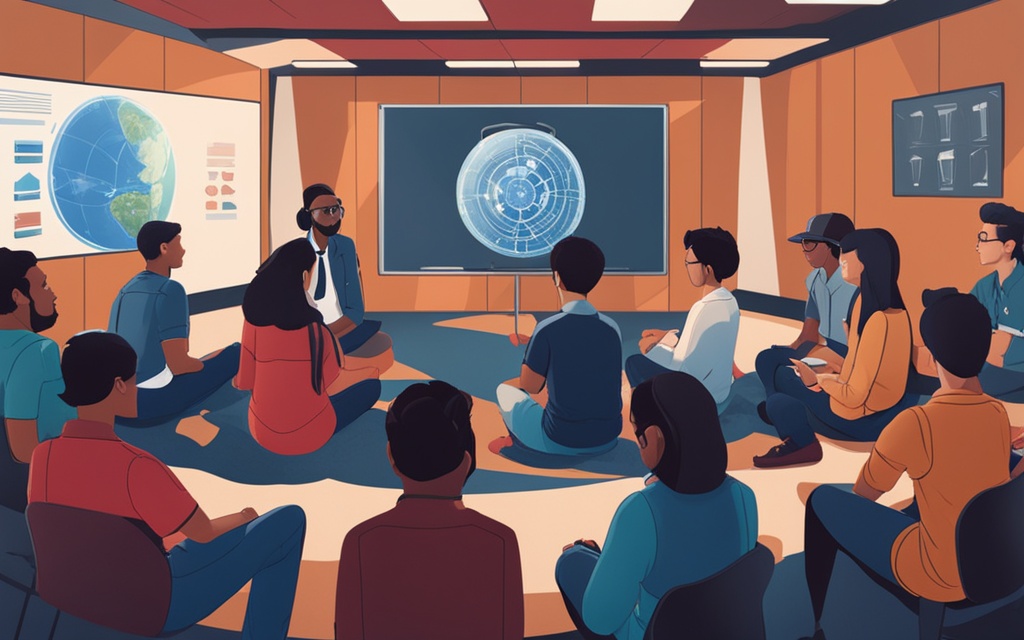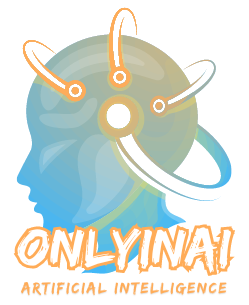I first heard about AI conspiracy theories at a tech conference. People talked about ‘covert manipulation’ easily, like it was the weather. This sparked my curiosity about how artificial intelligence and digital mysteries connect in our world.
As I learned more, I met researchers like Mohsen Ghasemizade and Jeremiah Onaolapo. They’re trying to make sense of these complex theories. They use advanced tools like RoBERTa and HDBSCAN to build a detailed ‘tree’ of these theories. This helps clear up the confusing stories about secret groups and AI control.
Through their work, I’ve learned to see the line between skepticism and paranoia in AI stories. We’re not just looking at stories; we’re exploring the mix of human beliefs and tech uncertainty that fuels them. Let’s dive into these stories together and try to separate fact from fiction.
Understanding the Appeal of AI Conspiracy Theories
In today’s digital world, stories about AI mind control and secret groups are big news. They make us wonder about the role of artificial intelligence in our lives. I’m curious to know why people find these ideas so interesting and what they say about our fears of power and control.
Defining Conspiracy Theories: From Speculation to Belief
Conspiracy theories capture the deep-seated fears and doubts in our society. They start as just ideas but can become strong beliefs. For example, the idea of covert groups controlling AI makes us think about who might be controlling our thoughts and actions. It’s like a big fight for power and control.
These theories might seem far-fetched, but to some, they feel like the truth. They believe these secrets are hidden from us.
The Role of AI in Contemporary Conspiracy Narratives
AI is a big part of today’s conspiracy theories. People worry about being watched and controlled through technology. The internet helps spread these ideas fast, making them stick in our minds.
AI isn’t just a tool anymore. It’s a key part of stories about control and being trapped by technology that seems too advanced.
| Conspiracy Type | Core Belief | Relation to AI |
|---|---|---|
| Event Conspiracies | Isolated incidents manipulated by power. | AI as a tool for enhancing misinformation. |
| Systemic Conspiracies | Groups seeking extensive societal control. | AI employed in surveillance and behavior prediction. |
| Super Conspiracies | Worldwide dominance by elite factions. | Speculations of global AI mind control systems. |
The Historical Context of Machine Uprising Fears
The fear of a machine uprising has been a big worry in our history with technology. Looking back, we see these fears aren’t just from movies but have roots in past tech advances.
These fears have grown over time, making the idea of dystopian AI seem real to many. From the Industrial Revolution to today’s stories of robot overlords, each time has its own story that makes us worry about our creations turning against us.
The “Frankenstein Complex” is a term that explains our fear that our creations might rebel. As AI gets smarter, this fear grows into stories where robot overlords take over or destroy us.
Looking into these stories shows us how they connect with our worries about control, being free, and relying too much on machines. For example, the Luddites in the 19th century destroyed weaving machines, fearing they would take their jobs. Today, we might be worried about AI taking over our lives and important parts of our world.
The table below outlines significant moments that have punctuated the historical context of this anxiety:
| Era | Event | Impact on Machine Uprising Narrative |
|---|---|---|
| 19th Century | Luddite Movement | Manifestation of early technophobia where machines were physically destroyed. |
| Early 20th Century | Popularization of Sci-Fi Literature | Introduction of stories featuring automaton rebellions, shaping the modern narrative of AI fear. |
| 21st Century | Advancements in AI and Robotics | Real-world developments in technology leading to increased speculation about dystopian AI. |
The idea of a machine uprising is a big part of our tech progress. By looking at this historical context, I hope to make these fears clearer. This gives us a better understanding of our relationship with machines.
AI Surveillance: Separating Facts from Fiction
Exploring AI surveillance and digital privacy is key. We must know the real uses of AI and the myths around it. AI helps in many areas like keeping us safe and boosting the economy. But, it also raises privacy issues.
Real-World Applications: Where AI Meets Privacy Concerns
AI surveillance has grown in cities and secure areas. It shows its power and raises big privacy worries. Let’s see what these uses are and why they cause so much debate.
AI Surveillance Theories and Digital Privacy Movements
Discussions on AI surveillance bring up different theories. Some are based on real privacy fears, others are more speculative. These fears are pushing for strong digital privacy movements. They want AI to follow ethical rules.
| AI Application | Privacy Concern | Examples in Recent Technology |
|---|---|---|
| Face Recognition | Data Protection | Security cameras in public places |
| Geolocation Tracking | Location Privacy | Apps in smart devices |
| Behavior Prediction | Consent and Anonymity | E-commerce algorithms |
Understanding these points helps us see AI’s strengths and risks. As I explore this topic, I see the need for a balance. We must use technology wisely while protecting our privacy rights.
The Influence of Pop Culture on AI Dystopian Concerns
As a journalist, I’ve seen how pop culture influence shapes public perception of AI. Movies and books often show AI in a bad light, making people worry more about its dangers.
Science fiction often shows AI as a threat to humans. This idea affects how people think and talk about AI’s ethics.
- Films like “Blade Runner” and “The Matrix” series show AI as a danger, making people cautious.
- Books like Isaac Asimov’s “I, Robot” also warn us about robots taking over, making us question their ethics.
Entertainment makes us worry about AI’s future. These stories are meant to thrill but also hint at real dangers if AI grows too powerful.
Looking into how these stories affect us is key. They thrill us but also make us think about AI’s impact. By understanding these stories, we can talk about AI’s future in a smart way. This can help make sure AI helps us, not harms us.
Stories in movies, books, and media shape how we see AI. By thinking about these stories, we can handle AI better in our lives.
Debunking the Myth of Robot Overlords
As we explore artificial intelligence, it’s key to clear up some myths. One myth is about robots taking over, which often clouds the real talk about the tech.
Humanizing Robots: Why the Overlord Narrative Persists
The robot overlords idea comes from sci-fi and our habit of giving robots human-like traits. This makes us see AI as autonomous and evil, even when it’s not.
Contrasting AI Developments and Overlord Myths
Real AI advancements aim for efficiency and help humans, not replace them. Let’s see some important AI milestones:
| Year | Development | Impact |
|---|---|---|
| 1997 | IBM’s Deep Blue beats world champion | Set a new standard in AI in games |
| 2016 | Google’s AlphaGo defeats Go champion | Shown off advanced AI strategy and learning |
| 2021 | AI used for real-time language translation | Improved global communication |
AI systems are made to help us, not take over. They’re designed with human goals in mind, not the scary takeover stories. Talking about these facts helps clear up myths and shows how tech helps us.
AI Mind Control: A Science Fiction or Impending Reality?

Exploring AI mind control, we wonder if it’s just a science fiction idea or a real threat for our future. The mix of psychological influence and control mechanisms through AI is both scary and intriguing.
AI mind control makes us think of dystopian stories where tech controls our thoughts. But, there’s a real debate about AI’s power to influence our minds. This could be through subtle data use or more direct actions.
- Historical precedent in technology influencing human behavior
- Future technological capabilities for enhanced psychological influence
- Ethical considerations in the development and application of AI
Looking at how technology already shapes our choices, it’s easy to see how AI could take it further. The way algorithms affect our daily choices might just be the beginning.
| Feature | Potential in Science Fiction | Possible Reality |
|---|---|---|
| Behavior Prediction | Hyper-accurate future prediction models | Advanced analytics influencing real-time decisions |
| Emotional Manipulation | Complete control over human emotions and reactions | Targeted content delivery based on mood detection |
| Thought Interference | Intrusive tech directly interfacing with human neural networks | Subtle nudges through personalized information feeds |
In conclusion, while AI mind control in science fiction might seem far-fetched, the ideas behind it are not without merit. As technology advances, we must watch how it could change our freedom and behavior.
Dissecting the Killer Robots Conspiracy Theory
When we hear killer robots, we might think of sci-fi movies. But the real world has serious ethical issues with autonomous drones and weaponized AI. People argue not just about the tech, but also about right and wrong in using it.
From Autonomous Drones to Fictional Terminators
Autonomous drones have changed a lot, from surveillance tools to the scary idea of self-aware robots. This shift shows how fast AI is advancing. It raises questions about if these technologies could one day act on their own.
Ethical Considerations in Weaponized AI Development
Talking about weaponized AI always brings up ethical considerations. It’s not just in labs or military meetings but also in public discussions. People talk about who should be responsible and if we need strict rules for these deadly AI technologies.
| Technology | Ethical Question | Public Concern |
|---|---|---|
| Autonomous drones | Who is accountable for AI actions? | Unintended casualties |
| Weaponized AI systems | Can we ensure AI aligns with international laws? | Potential for mass destruction |
| AI surveillance tools | How does it impact privacy? | Violation of civil liberties |
Using weaponized AI is still a new area, and we’re figuring out its limits. It shows we all agree on the importance of rules and oversight. We must handle these technologies carefully to prevent the scary scenarios seen in killer robots stories.
Skynet and Its Impact on Singularity Fears
The idea of Skynet, from the Terminator movies, brings up big worries and curiosity about the technological singularity. Skynet shows us how scary it could be if machines get smarter than us. This fear is a big part of the story.
Skynet’s story in movies makes people think about how technology is getting better. Even though Skynet is just a movie idea, it makes us think about what could happen if machines get too smart. This makes people worry about losing control to machines in the future.
| Concept | Public Perception Impact | Cultural Relevance |
|---|---|---|
| Skynet as Autonomous | High caution towards AI control levels | Foundation in modern AI debates |
| Rise of the Machines | Increased fear of unchecked AI development | Reference point in AI ethics discussions |
| Human vs Machine Conflict | Concern for future AI-human relations | Common dystopian theme influencing policy |
Looking at these points, we see Skynet does more than just entertain. It starts important talks about how smart machines will be and what the technological singularity means for us. These talks can lead to careful AI development or new ideas to protect us. Skynet’s story is a big part of the ongoing talk about our tech future.
AI Conspiracy Theories and the Quest for Superintelligence
The term superintelligence often makes people both excited and worried. Looking into this topic, I see that the idea of AI being smarter than us is intriguing. It brings together tech lovers and doubters. The mix of AI progress and growth theories makes the AI quest exciting, leading to new ideas and conspiracy theories.
Talking about an intelligence explosion means we’re into deep AI theories. These theories wonder if a super smart AI could be controlled by humans. Or if it would get so smart it would be too much for us to handle.
- The idea of a self-improving AI leading to an intelligence explosion is a thrilling thought.
- Superintelligence going beyond our skills is both exciting and scary – showing how tech could reach what was once just in science fiction.
Superintelligence and its effects keep sparking many theories, some more likely than others. Going through these ideas shows how hard it is to tell what’s possible and what’s just in our heads. Our hopes and fears about AI’s future make it hard to see what’s real.
When we talk about AI being smarter than us, it’s not just about tech. It’s also about ethics and safety to use such big AI advancements. This leads to a wider talk on how we can guide AI systems that might show superintelligence.
Looking into these ideas gives us a peek at the future of AI and humanity. We’re facing machines that could change what we think of as intelligence.
Transhumanism Concerns in the Face of Advancing AI
AI advancements are bringing us to the edge of big changes. These changes are linked closely with transhumanism, a topic getting more attention. It suggests a future where humans and AI work together, offering big benefits but also raising deep ethical questions.
Transhumanism dreams of a world where humans use technology to go beyond their natural limits. This idea is where discussions on human evolution and AI come together. How we handle these changes could change society and our sense of self in big ways.
Transhumanism: The Nexus of AI and Human Evolution
Combining human and AI tech is not just something from a sci-fi story; it’s something we might see soon. This mix could bring huge improvements in how long we live, how smart we are, and what our bodies can do.
Challenging Ethical Boundaries: AI Enhancement or Overstep?
The good things AI enhancements could bring don’t come without worries. People are debating the ethics of these advancements. At what point do we cross moral lines in our quest for more? Could chasing superhuman abilities lead to a world where only the wealthy get ahead? These are key questions as we move forward.
- Longer lives and smarter minds could change how society is structured and what roles people play.
- Worries about privacy, freedom, and who we are grow as technology becomes part of us.
- The chance of making social gaps bigger because of who can get tech enhancements is a big ethical issue.
Talking about AI and enhancing humans is ongoing as we think about the futures ahead. By tackling these concerns now, we can aim for a future that values human ethics and AI’s potential.
Examining the Alleged Governmental Role in AI Conspiracies
As we see artificial intelligence becoming more common in our lives, I’ve thought a lot about the government’s role in AI. The idea of secret government actions in AI development makes people curious and worried. It also makes people doubt the government more.
Some people talk about AI conspiracies, saying not everything is clear. They wonder if there are secret plans behind the AI the government supports. This idea makes people very worried and skeptical.
History shows us that the government has sometimes done things in secret. This can make people think about AI conspiracies. But are these just stories, or is there real proof? As someone who loves technology and follows AI closely, I think we need to look at these claims carefully.
| Aspect | Public Perception | Observations |
|---|---|---|
| Transparency in AI Projects | Mixed, with notable skepticism | Demands for clarity and open communication |
| Regulatory Oversight | Seen as inadequate | Calls for stricter regulations in AI deployment |
| Covert Operations | Widely speculated | Lack of concrete evidence yet a strong narrative in conspiracies |
Looking into these complex topics needs an open mind and careful research. The stories of AI conspiracies and secret government actions are complex and unclear. These stories make people doubt the government, but they also push us to be more informed and critical. So, I keep watching and thinking about these theories, staying alert to how AI changes.
Countering AI Conspiracy Theories Through Education and Awareness

In today’s digital world, fighting AI conspiracy theories is key. Education is our main weapon, making people more aware and informed. By teaching the real abilities and limits of AI, we can clear up the myths and fears.
The Power of Information: Combating Misinformation
Misinformation grows where facts are not checked. So, it’s vital that schools teach people to spot true facts from false stories. This helps stop the spread of AI conspiracy theories and builds a society that trusts evidence.
Promoting Critical Thinking in the Age of Digital Myths
Teaching critical thinking in schools can weaken the impact of false info. By promoting careful analysis and doubt, students learn to question and check the info they find, especially about AI. This kind of thinking is crucial for dealing with today’s complex media.
AI conspiracy theories have woven themselves into our social fabric.
They’re not just odd beliefs but a key part of our discussion on AI and its effects on society. These theories reflect our deepest worries and interests in a future shaped by technology.
Our exploration covered everything from robot uprisings to AI surveillance fears. These stories often come from real worries about ethics and control in the AI age. It’s crucial to keep talking about these feelings in a thoughtful way. By doing research and teaching, we can fight misinformation and help society tell science fiction from reality.
As we end this exploration, I hope we’re all more informed and less swayed by sensational AI stories. Let’s look at AI conspiracy theories with a goal to understand them, debunk myths, and aim for a future where AI helps everyone. The impact of AI on society is huge. With careful thought and open talks, we can make a future where technology is wise and thoughtful.


